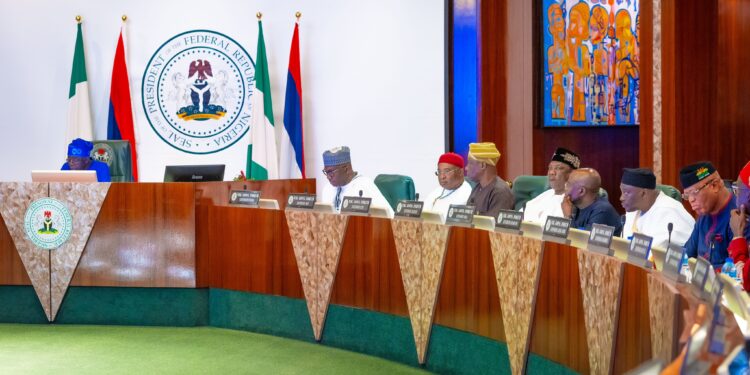The Nigeria Governors’ Forum (NGF) has endorsed a revised Value Added Tax (VAT) sharing formula, which it believes will ensure equitable distribution of Nigeria’s resources.
The details were disclosed in a communiqué issued on Thursday and signed by AbdulRahman AbdulRazaq, Chairman of the Nigeria Governors’ Forum and Governor of Kwara State.
The communiqué was released at the end of sub-national consultations and engagements with the Presidential Tax Reform Committee and other relevant stakeholders including the Federal Inland Revenue Service.
NGF Decision
- According to the communiqué, following deliberations between the NGF and the Presidential Tax Reform Committee on critical national issues, including reforms to Nigeria’s fiscal policies and tax system, the forum arrived at several resolutions.
- First, the forum reiterated its strong support for the comprehensive reform of Nigeria’s archaic tax laws.
- Members acknowledged the importance of modernizing the tax system to enhance fiscal stability and align with global best practices.
The NGF endorsed a revised VAT-sharing formula aimed at the equitable distribution of resources:
- 50% based on equality,
- 30% based on derivation, and
- 20% based on population.
Members also agreed that there should be no increase in the VAT rate or reduction in Corporate Income Tax (CIT) at this time.
This decision, they noted, was aimed at maintaining economic stability.
“The Forum advocated for the continued exemption of essential goods and agricultural produce from VAT to safeguard the welfare of citizens and promote agricultural productivity.
” The meeting recommended that there should be no terminal clause for TETFUND, NASENI, and NITDA in the sharing of development levies in the bills, ” the communique also added.
Furthermore, the communiqué stated that attendees supported the continuation of the legislative process at the National Assembly, which will culminate in the eventual passage of the Tax Reform Bills.

What You Should Know
Nairametrics previously reported that the Northern Governors’ Forum, chaired by Gombe State Governor Muhammed Inuwa Yahaya, had rejected the derivation-based model for VAT distribution proposed in the new tax bill under deliberation at the National Assembly.
- In a communiqué signed by Governor Yahaya after a meeting between Northern governors and elders, the forum criticized the proposal, arguing that it undermines the interests of the North and other sub-national regions.
- The forum also urged members of the National Assembly to reject the bill and any similar legislation that could compromise the welfare of Northern people.
- However, President Bola Tinubu maintained that governors and other stakeholders should engage the legislative process on the issue.
- The Chairman of the Presidential Committee on Fiscal Policy and Tax Reforms, Mr Taiwo Oyedele, also reacted to the Northern Governors’ Forum’s opposition to the derivation-based VAT distribution model in the new finance bill.
According to Oyedele, the current VAT distribution model is not only unfair to Northern states but also to states across all geopolitical zones.
He explained that the committee’s proposal aims to create a fairer system that considers where goods are consumed or supplied, irrespective of their VAT status.
Currently, under Section 40 of the VAT Act, VAT revenue is allocated as follows:
- 15% to the Federal Government,
- 50% to the States and FCT, and
- 35% to Local Governments, with at least 20% of the distribution to states and local governments based on a derivation principle.
While not explicitly stated in the VAT Act, other factors affecting the distribution include:
- 50% based on equality, and
- 30% based on population.
Additionally, a 4% collection fee is allocated to the FIRS, and 2% to the NCS for import VAT.
The tax reform bills have already passed the second reading in the Senate.




